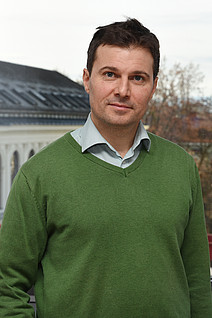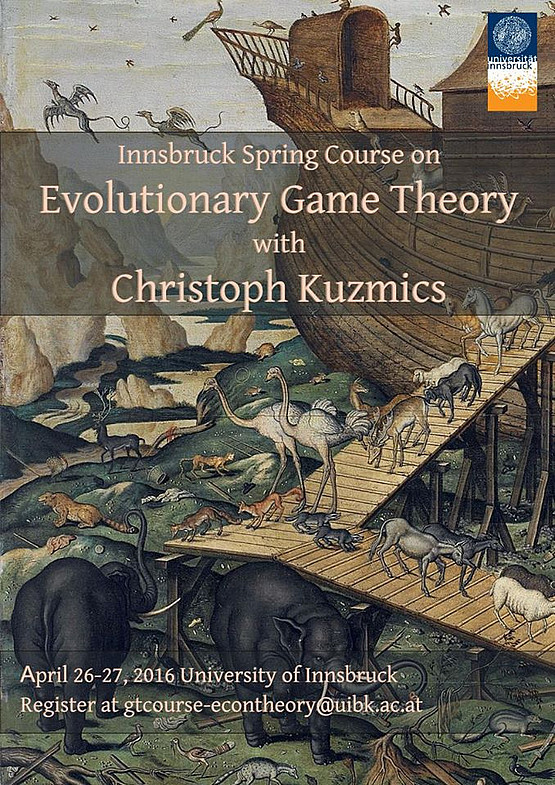selected teaching activities
A PhD course on Evolutionary Game Theory
@ Innsbruck, April 2016
Topics:
0) Philosophy behind and Questions leading to what we do in this course
Key insight: equilibrium play requires more than common knowledge of rational players
1) Static Models of Evolution
Tools: evolutionary stable strategies
Key insights: evolutionary stability implies Nash equilibrium; not every Nash equilibrium is evolutionary stable
2) Deterministic Dynamic Models of Evolution, Replicator Dynamics 1
Tools: (simple) differential equations and (simple) phase diagrams; checking stability through Lyapunov functions
Key insight: (static) evolutionary stability implies dynamic (asymptotic) stability
3) Deterministic Dynamic Models of Evolution, Replicator Dynamics 2
Tools: checking stability through linearization; long-run behavior (convergence)
Key insights: dynamic (asymptotic) stability does not imply (static) evolutionary stability; convergence implies Nash equilibrium
4) Deterministic Dynamic Models of Evolution, More General Dynamics
Tools: more on linearization of dynamic systems
Key insights: for any reasonable dynamic model of evolution there are games in which evolution does not converge to equilibrium for an open set of starting points (evolution does not always converge to stable behavior)
Literature: William Sandholm's 2010 Population Games and Evolutionary Dynamics; Josef Hofbauer and Karl Sigmund's 1998 Evolutionary Games and Population Dynamics; Jörgen Weibull's 1995 Evolutionary Game Theory
PhD Course on Game Theory
@ Center for Social Complexity, Universidad del Desarrollo, Santiago, Chile; March and April 2015 and 2016
Topics:
1) dominant strategies and backward induction
2) dominated strategies, iterated elimination of dominated strategies and common knowledge of rationality
3) evaluating objective randomness: von Neumann and Morgenstern's axioms for expected utility
4) evaluating subjective randomness: Abraham Wald's complete class theorem and subjective expected utility
5) mixed strategies and minmax strategies
6) Nash equilibrium and the coordination of beliefs
7) dynamic games with imperfect information and subgame perfection
8) games with incomplete information, Bayesian dominance, and Bayesian Nash equilibrium
I have no preferred textbook for this course
I also offer courses at various levels on
industrial organization
includes: price discrimination, oligopoly, repeated interaction, incentives for innovation
incomplete information game theory
includes: Aumann's (1976) model of knowledge; can't agree to disagree; no speculation theorem; communication games, persuasion games, signalling games
mechanism design
includes: screening, auctions, public good provision, Bayesian and dominant strategy mechanisms; essentially follows parts of Tilman Börger's Introduction to Mechanism Design
Christoph Kuzmics
 Institut für Volkswirtschaftslehre
Institut für VolkswirtschaftslehreInstitut für Volkswirtschaftslehre
